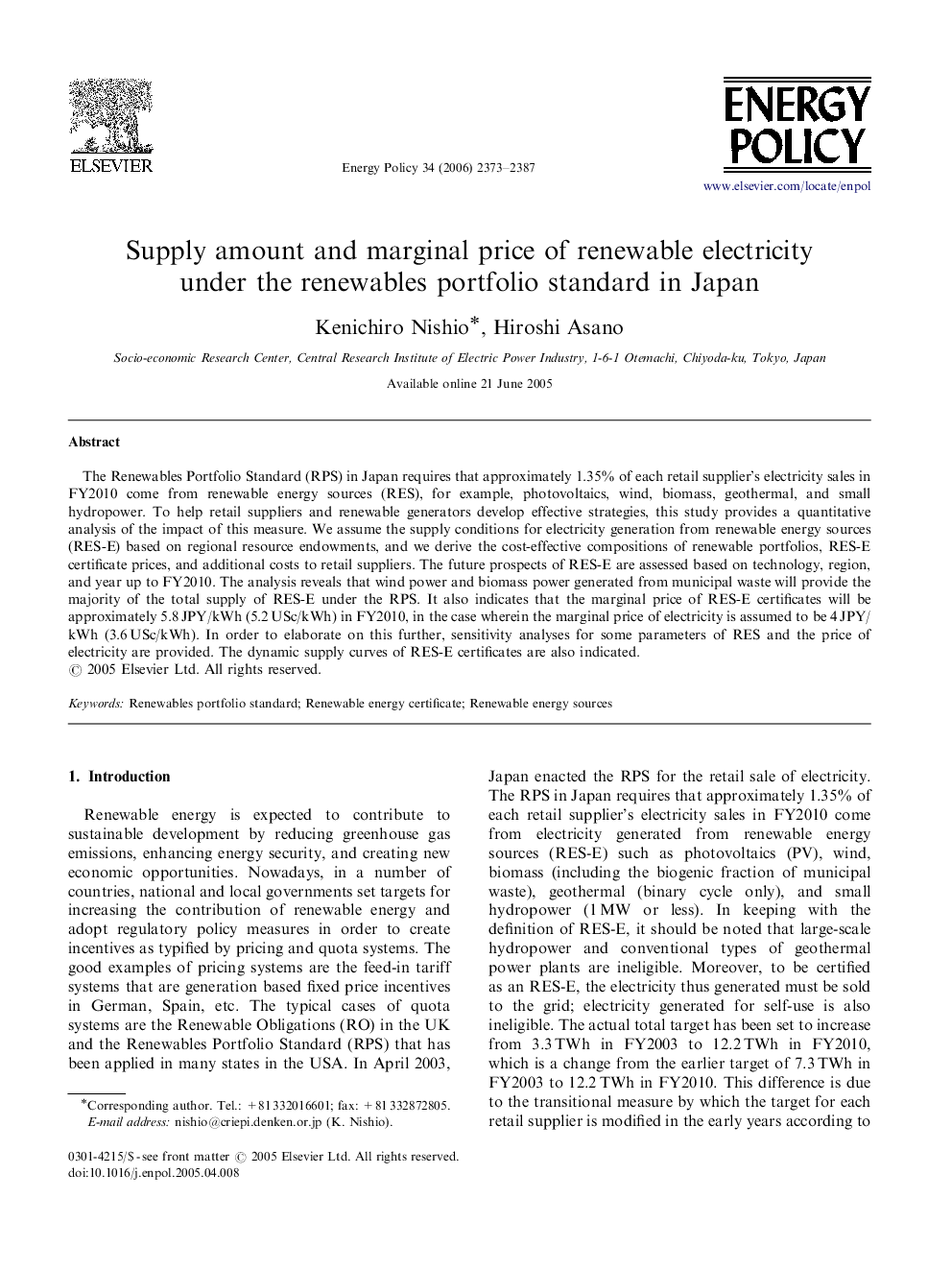| Article ID | Journal | Published Year | Pages | File Type |
|---|---|---|---|---|
| 994403 | Energy Policy | 2006 | 15 Pages |
The Renewables Portfolio Standard (RPS) in Japan requires that approximately 1.35% of each retail supplier's electricity sales in FY2010 come from renewable energy sources (RES), for example, photovoltaics, wind, biomass, geothermal, and small hydropower. To help retail suppliers and renewable generators develop effective strategies, this study provides a quantitative analysis of the impact of this measure. We assume the supply conditions for electricity generation from renewable energy sources (RES-E) based on regional resource endowments, and we derive the cost-effective compositions of renewable portfolios, RES-E certificate prices, and additional costs to retail suppliers. The future prospects of RES-E are assessed based on technology, region, and year up to FY2010. The analysis reveals that wind power and biomass power generated from municipal waste will provide the majority of the total supply of RES-E under the RPS. It also indicates that the marginal price of RES-E certificates will be approximately 5.8 JPY/kWh (5.2 USc/kWh) in FY2010, in the case wherein the marginal price of electricity is assumed to be 4 JPY/kWh (3.6 USc/kWh). In order to elaborate on this further, sensitivity analyses for some parameters of RES and the price of electricity are provided. The dynamic supply curves of RES-E certificates are also indicated.
